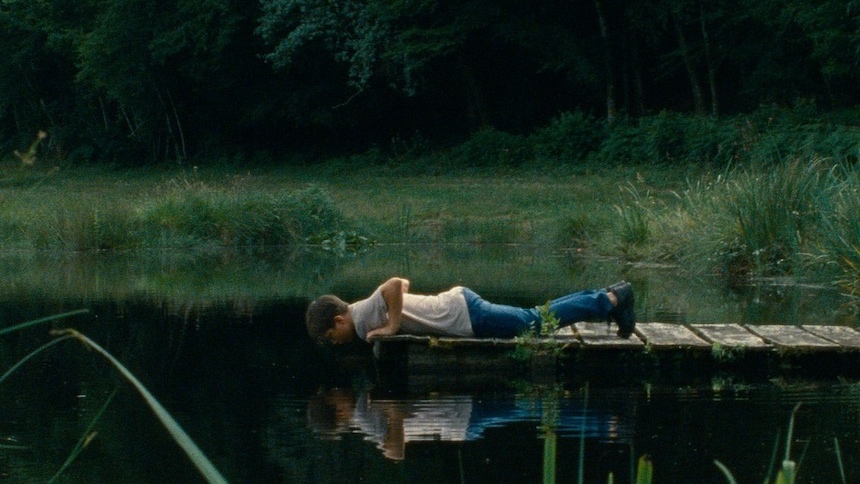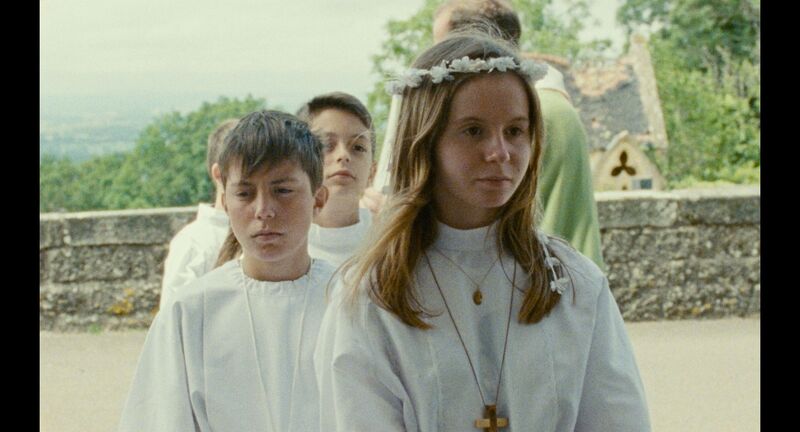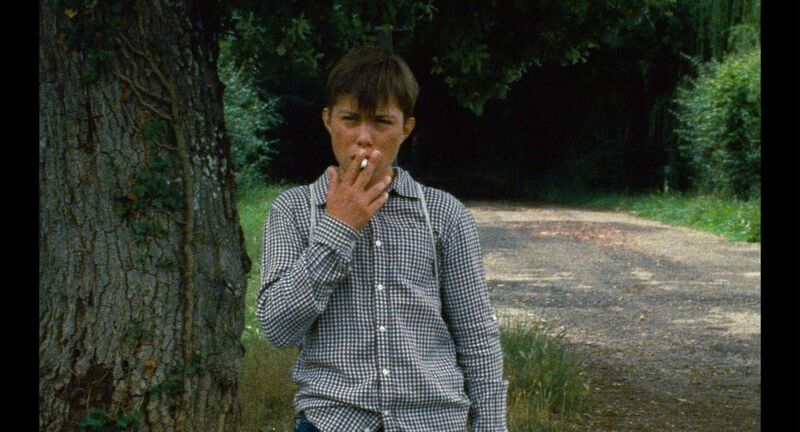Locarno 2022 Review: ASTRAKAN, Social Allegory Disguised As Coming-of-Age Tale

In his feature-length debut, French filmmaker David Depesseville explores the strangeness and confusion of growing up during the prepubescent period.
Astrakan revolves around a 12-year-old orphan named Samuel. Eventually, he ends up living with Marie and Clément, a young couple with two children of their own.
The couple lives in a rural area and comes from a working-class background. Their act of taking a kid who isn't their own under their roof is more about helping themselves than the kid. Having Samuel around provides them with money they need.
The kid is trying to form a bond with his foster mother Marie while the violent outbursts of Clément alienate him more. Samuel's foster family dynamics and relationship with his foster grandparents are just one dimension of his life.
The kid's unprocessed traumas manifest themselves in bodily (dis)function while navigating his budding sexuality. The literal girl next door in Samuel's orbit would be a godsend for any teenager. Due to the fact that they are both prepubescents, the lust-laced seduction initiated by the girl comes off as cringeworthy and awkward.
In addition, Depesseville does not strike the usual notes of a bildungsroman. Astragan combines impressionistic and naturalistic approaches with magical realist and symbolic panache, with bleaker undertones.
The film has a rich register of dualistic patterns combined and intertwined across each other. Innocence meets sexuality and violence, superstition meets secularism and agnosticism, sacral against profane and sinful, playful against abusive, carnal and criminal, childish and infantile against mature and adult, family and communal against lonely and individual.
In the midst of this vortex, Samuel tries to make sense of the senseless and perplexing, and somehow move forward. Despite his young age, Samuel appears hardened by his misfortunes and accepts his fate with firm stoicism, for the most part.
Occasional outbursts by Samuel accompany the most extreme situations. It is especially evident when Samuel is forced to stay with his uncle Luc, an implied pederast, or when he is beaten by his foster father after he is falsely accused of something.
The director maintains a veil of mystery regarding the duration of Samuel's stay with the foster family. It is hard to decipher if Samuel is a new arrival or has been staying with them already for some time. Moreover, his background remains unknown, as trauma relating to the loss of his mother hovers over his unconsciousness.
Astrakan is an odd duck in the coming-of-age genre. Its rural lyricism is coupled with the misunderstandings and melancholy of navigating the whole ordeal. Samuel makes some major misjudgments, including a bloody vengeance he commits in response to a heartbreaking betrayal.
Defesseville does not even attempt to depict this brutal and evil scene in a conventional suspenseful manner. His disengaged perspective lets the act unfold naturally with lyrical realism and an anticlimactic denouement.
If Astrakan had an allegorical precedent, it would be the narrative archetype of Teorema. In Pasolini's classic, a mysterious character, The Visitor, disrupts the lives of a bourgeois family. The stranger acts as an agent of discord, discombobulating the family's usual flow of events.
Samuel becomes that archetype of a fool that presumably disrupts the lives of his foster family. Behind a facade of angelic innocence hiding traumas, Samuel voluntarily and unintentionally rattles a stereotypically rural folk's life in a kind of backhand manner.
In his portrayal of Marie, Clément, and their family members, Depesseville assumes a stoical tone, depicting tragedy and hardship in the pastoral existence of the family members. As a victim in the chain of events, Samuel often shoulders the brunt of guilt even if he has no ill intention. Yet his presence upsets the microcosm of rural society's balance.
As a result, Astrakan becomes an elaborate narrative on the surface, but contains hidden layers that reveal themselves upon closer inspection. Its title refers to a special kind of black wool that comes from lambs killed before birth, and there is an inherent cruelty to the film throughout.
As the story progresses, a lamb becomes a frequent symbol, amplified by the religious setting and Samuel's preparation for his first communion. Despite conventions of the coming-of-age genre, Depesseville makes a clever play on the notion of black sheep and Agnus Dei to create an ambiguous character.
A brief epilogue reveals that the director purposefully used elliptical narration. While the entire family blames Samuel for what happens, Depesseville reveals the culpability of the entire family and society as a whole.
In spite of the fact that he may go heavy on the symbolism with an actual black lamb entering the picture, and the epilogue taking a heavy-handed approach to revealing what had actually happened, it does not ruin the picaresque experience. Despite being an allegory, the film works as a concentrated representation of the agony and confusion of growing up.
Astrakan is a social allegory disguised as a coming-of-age tale imbued with the latent cringe cruelty of Todd Solondz's poetics. Using religious imagery and child trauma, the French bucolic is a fusion of rustic and magical realism, a seemingly banal portrait of a family's mishaps caused by a cognitive dissonance exposes society's collective cognitive dissonance and the hypocrisies it has been running on and raising the next generation in.
Astrakan
Director(s)
- David Depesseville
Cast
- Cameron Bertrand
- Nathaël Bertrand
- Jehnny Beth









